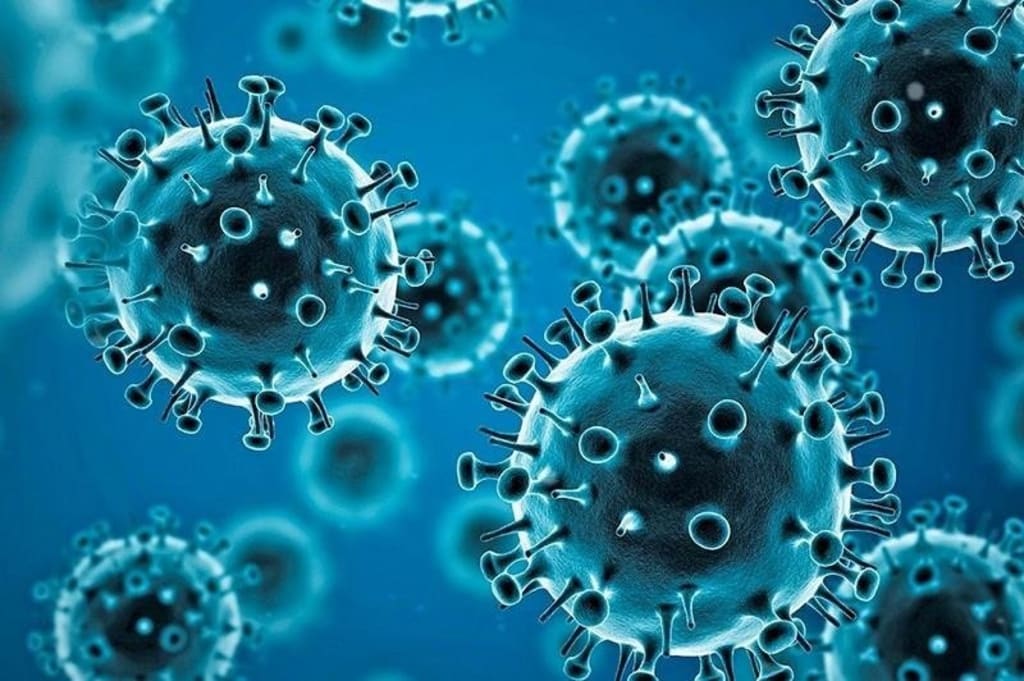Omicron may induce a less severe illness. A laboratory research provides some insight into why this is the case.
Omicron seems to have a lower rate of entry into lung cells.

Early observations of human cells in a lab dish reveal that the omicron variation of SARS-CoV-2 is less effective at entering the lungs and propagating from cell to cell than other variants of the coronavirus.
This might explain why preliminary evidence from South Africa and England suggests the strain produces less severe illness. Despite the fact that omicron does not easily enter lung cells, a recent study published on the online website bioRxiv on Tuesday (Dec. 21) demonstrated that the variation avoids most of the antibodies produced by fully vaccinated people.
In a statement, senior author Ravindra Gupta, a professor of clinical microbiology at the Cambridge Institute for Therapeutic Immunology and Infectious Diseases, said that a "booster" dose of the Pfizer vaccine significantly increased the neutralization power of vaccinated people's antibodies, "though we'd still expect a waning in immunity to occur over time."
The findings have yet to be peer-reviewed or published in a scientific journal, but they suggest that "omicron's mutations present the virus with a double-edged sword: it's gotten better at evading the immune system, but it might have lost some of its ability to cause severe disease," according to Gupta. However, scientists must prove that the findings from laboratory tests reflect what happens in real patients, and that omicron mutations affect the severity of illness.
Omicron infections may be less severe on average, according to data from South Africa, England, and other nations, but background levels of protection from natural infection and vaccination make these findings difficult to interpret, according to NPR.
According to Live Science, Omicron contains more than 30 mutations in the genes that code for its spike protein, which is the portion of the virus that plugs into cells to cause infection. Ten of these code for elements of the "receptor binding domain" (RBD), which is the section of the spike protein that binds to cells.
The researchers created synthetic viruses called pseudoviruses that carry the omicron spike protein to see how these spike mutations would affect how the virus interacts with cells. They also made pseudoviruses with the delta spike protein and some with the Wuhan-1 spike, or the actual SARS-CoV-2 virus, for comparison.
The researchers sought to know how three omicron-specific alterations in the virus's polybasic cleavage site (PBCS) influence its capacity to penetrate cells. According to a previous study by the researchers published June 8 in the journal Cell Reports, after the spike protein plugs into a cell, the PBCS cleaves, or splits open, allowing genetic material from the virus to enter the host cell; the alpha and delta variants carry PBCS mutations that help them enter cells more easily.
Because Omicron had comparable mutations in its PBCS genes as alpha and delta, the scientists expected that it would easily sneak into cells. They put this notion to the test by infecting human lung cells in lab dishes and lung organoids, which are 3D clusters of cells that replicate the properties of full-size lungs. Despite its worrying PBCS mutations, they discovered that omicron infiltrated lung cells and organoids less efficiently than delta and resembled Wuhan-1 more closely.
In a second trial, Delta outscored omicron. The delta pseudoviruses induced cell fusion when they entered a cell, a mechanism that causes surrounding cells to adhere together and allows the virus to travel fast between them. The researchers emphasized in their paper that widespread cell-cell fusion in the lungs is common in the setting of severe COVID-19. However, omicron started cell fusion less efficiently than delta in their trials, which appeared to limit the virus's capacity to reproduce in lung cells.
"We hypothesize that the more effective the virus is in infecting our cells, the more severe the sickness will be," Gupta said in a release. "The fact that omicron has a harder time getting into lung cells and generates fewer fused cells and lower infection levels in the lab implies that this novel version may cause less severe lung illness."
Future research will be required to ensure that the results of these trials in lab dishes are applicable to the human body. Meanwhile, the team's antibody trials show that individuals should obtain booster doses as soon as possible to have the most protection against the variation, according to Gupta.
"Individuals who have only had two doses of the vaccine, or worse, none at all," he continued, "are still at considerable risk of COVID-19, and some will acquire severe illness." "The sheer volume of new instances we encounter every day emphasizes the need of everyone getting their boosters as soon as possible."






Comments
There are no comments for this story
Be the first to respond and start the conversation.